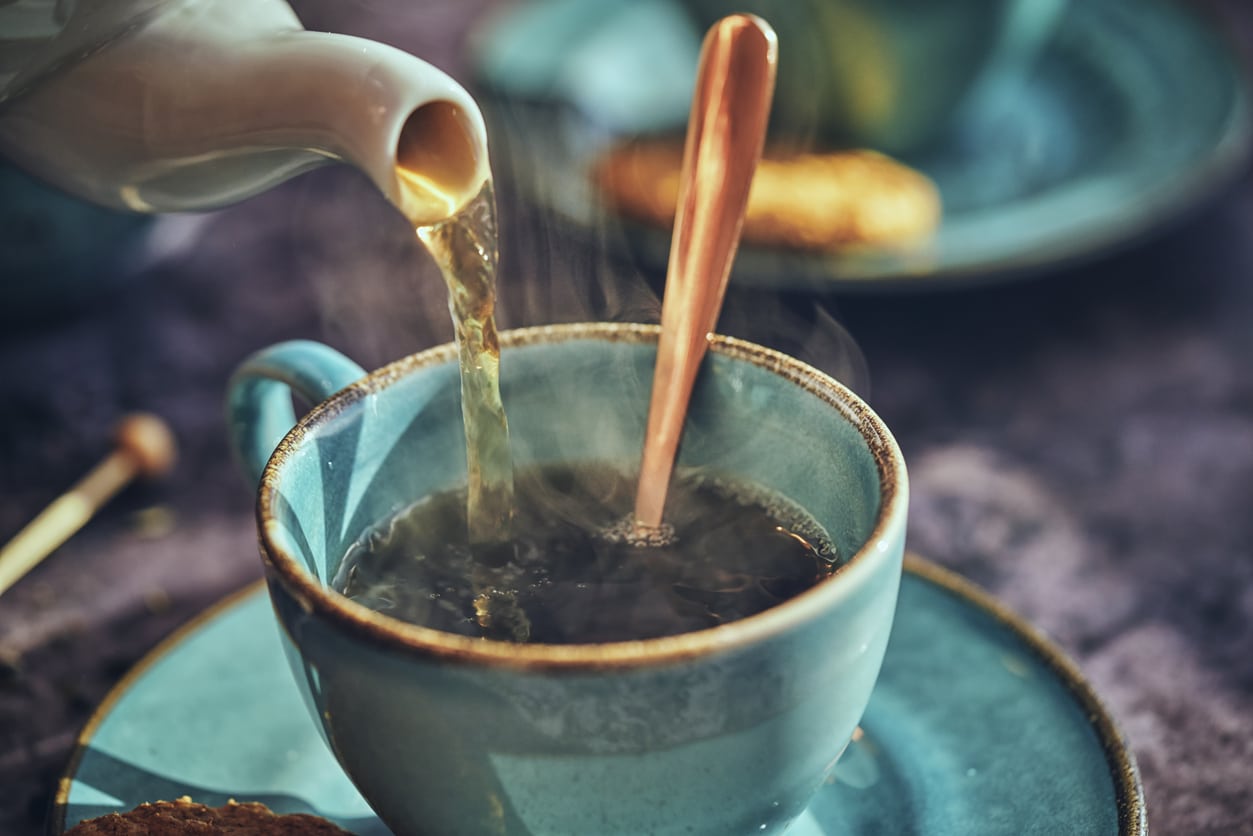As we move through the different stages of life, we experience our hormones changing. As you get older, your body cannot produce the same levels of hormones that it produced a lot of during your younger years.
For women, the most significant hormonal change occurs with the onset of menopause. Around the age of 50, the amount of hormones a woman’s ovaries produces decreases fairly significantly. You’ll notice the biggest drop in hormones are estrogen and progesterone.
To learn more about these hormones, what they’re responsible for, and how you can balance them as you age, read on.
Using Tea to Balance Your Hormones

Before we spill the tea, let’s first chat a bit more about the key hormones in your body.
Estrogen
Estrogen is the hormone responsible for the growth and continued health of a woman’s reproductive organs. In addition to that, estrogen is what keeps the vagina in peak shape (moisturized, elastic, and with good blood flow). It also helps to preserve the bones in your body.
As you age, you will experience a decrease in estrogen levels. You’ll start to notice this during perimenopause, but you’ll also notice that your estrogen levels drop irregularly.
And what does this drop in estrogen mean for your body?
Well, you can expect it to lead to vaginal dryness as well as hot flashes and night sweats. All these things contribute to a lower level of energy and lower libido.
Progesterone
This key hormone is responsible for getting the lining of a woman’s uterus ready for a fertilized egg to drop as well as helping keep the mother and baby healthy during the early stages of pregnancy.
When you hit menopause, the production of progesterone stops completely due to the fact that your body is no longer ovulating or menstruating.
Testosterone
This hormone is known as a male hormone, but women produce it as well, and it is key to a female’s sexual health.
The production of testosterone is linked to estrogen production, so it is clearly an essential part of the female body. Testosterone in women also plays a role in libido as well as the maintenance of muscle and bone mass.
Women reach their peak testosterone levels in their 20s, and from there on, they decline. Even though estrogen production stops when a woman reaches menopause, testosterone production doesn’t. This means that the drop in a woman’s testosterone levels is solely related to age rather than menopause. Because testosterone continues to be produced after menopause, some women find that their libido does not suffer even though estrogen levels drop and eventually cease to exist.
Tea for Your Hormones
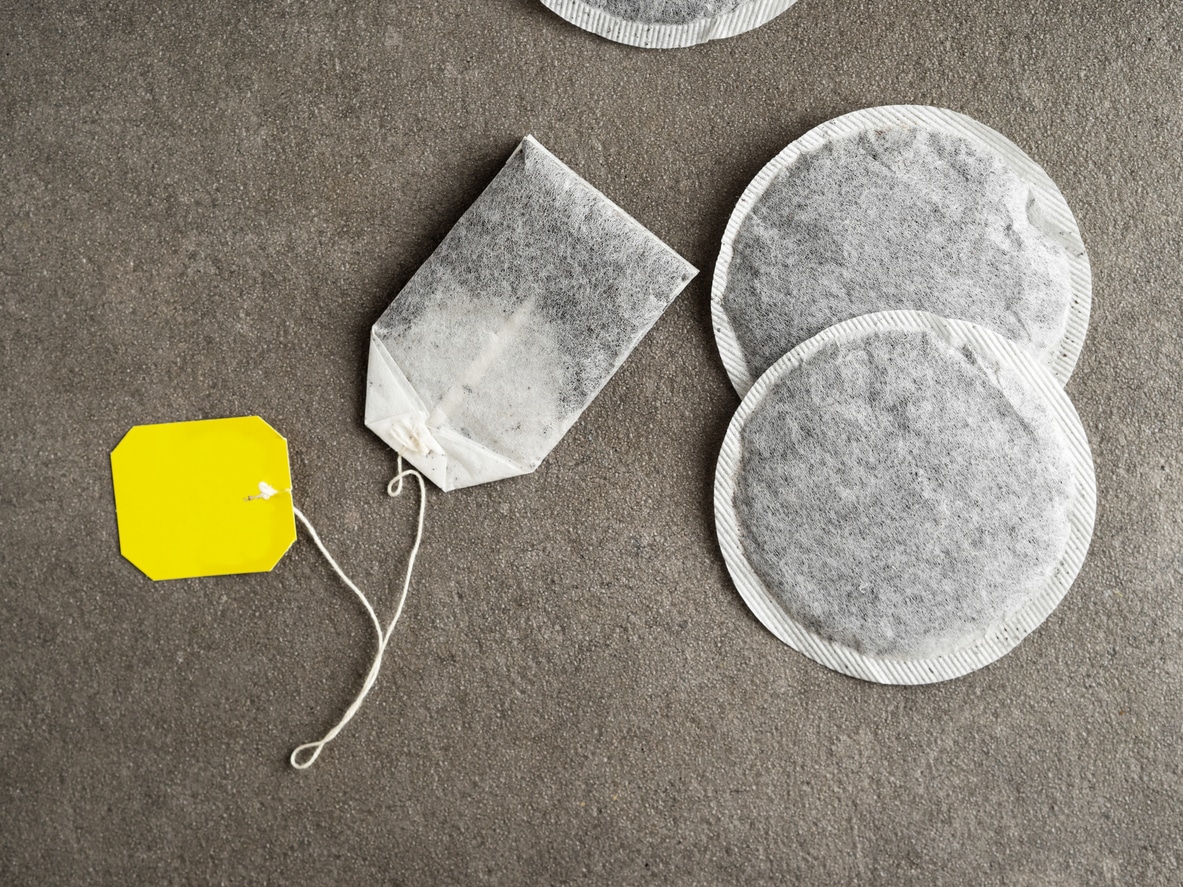
Now that you understand how hormones change as you age, it’s time to look at what you can do about it.
Some medications exist to provide women with the hormones that their bodies can no longer produce. However, if you’re looking for a more natural approach, you may want to turn to tea. Studies have shown that tea may play a role in balancing hormones, though the efficacy varies from person to person. It’s important to note that the level of herbs you consume with tea is low, so you may not experience an extreme difference. However, you may find that the following teas do make you feel better.
1. Ashwagandha

This shrub is used to make all kinds of teas, supplements, and more thanks to its ability to help your body manage stress and keep cortisol levels at a reasonable and manageable place. Ashwagandha is also used to aid with hormone issues and reproductive health, so you may find it beneficial to drink tea with this herb in it to help combat hormone issues.
2. Black Cohosh
Though this herb may be new to you, it is not new to Native Americans, who have been using it for years to help with things such as menopause symptoms. Regular tea consumption with black cohosh may support an imbalance in your hormones.
3. Red Clover
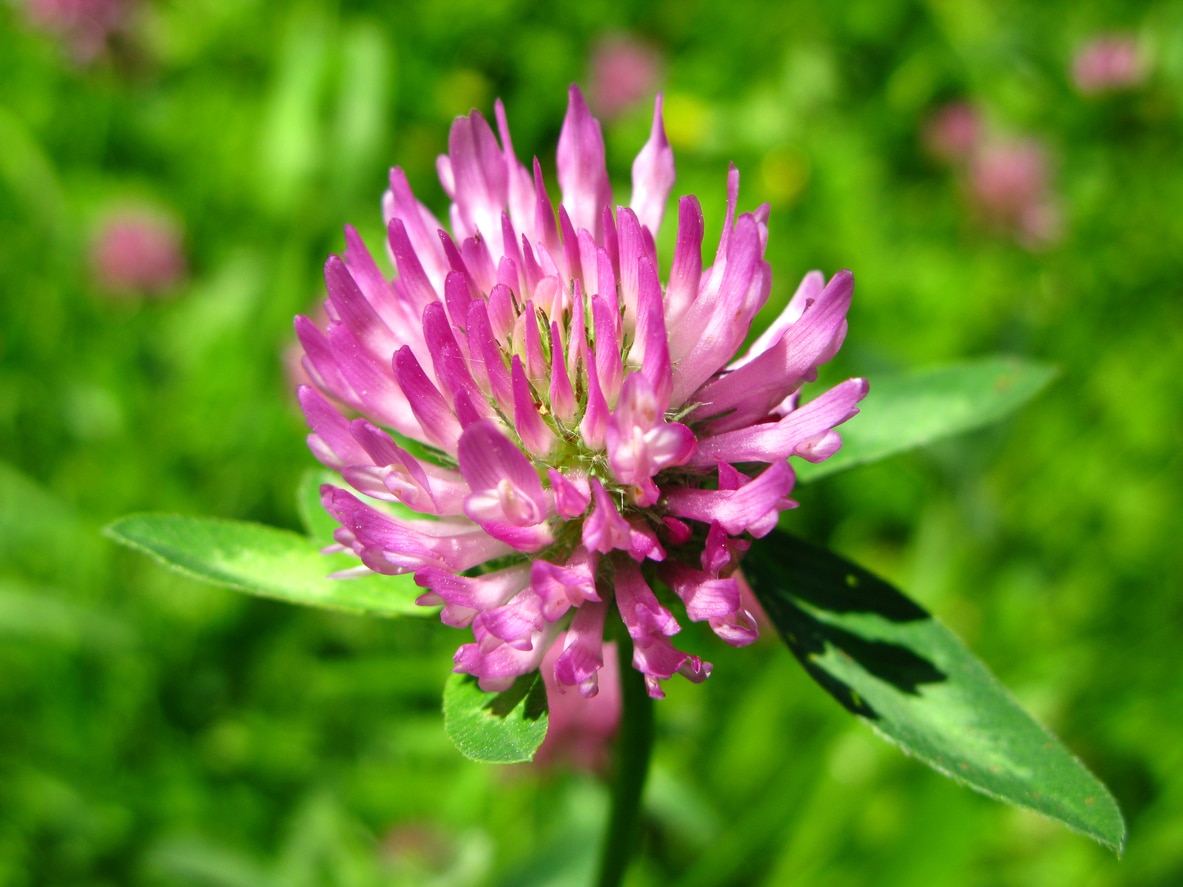
Hot flashes are one of the nasty side effects of menopause, and once you experience them, you may be willing to do just about anything to ensure they don’t consume your life. Sipping on some tea with red clover may help you do just that. Red clover has high levels of isoflavones, which act as phytoestrogens, thus potentially helping your hormones feel more balanced.
4. St. John’s Wort
Look for a tea with this herb in it to potentially aid with hormone issues related to menopause. St. John’s Wort is known to increase levels of serotonin and dopamine, which means it also may be helpful for anxiety and depression caused by a hormone imbalance. This herb is a powerful one, though, and does not react well with some medications, so be sure to talk to your doctor before sipping on a tea with this in it.
5. Chaste Tree Berry
This herb, also called vitex, has a long history of being used to balance hormones. Though the chaste berry tree does not contain hormones, drinking tea with this herb in it may help to regulate the pituitary gland, which is responsible for your hormone production. If the pituitary gland isn’t doing its job, your body can’t balance its hormones properly.
Want to learn more about menopause and hormones? Be sure to check out the other menopause articles on Prime Women to help you through this time.
Want to try out one of the teas? Here are our top picks:
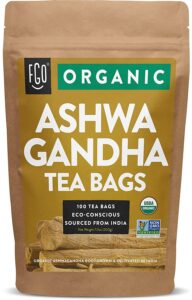
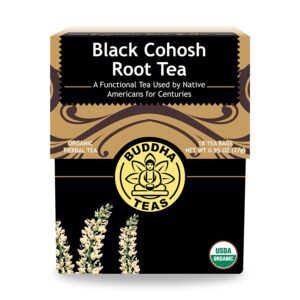
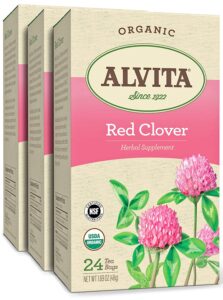
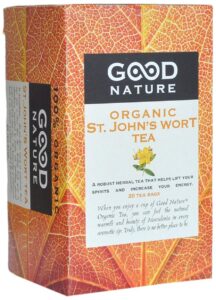
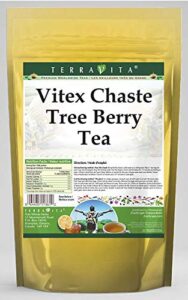
Be sure to check with your doctor before introducing tea with any of the above herbs into your diet. Information provided here is not intended as medical advice but rather as educational.
Read Next:
Fit Tea vs. Flat Tummy Tea: Which is Better?

